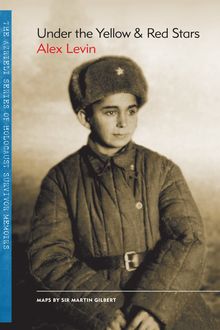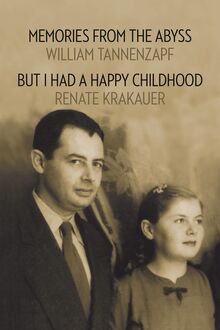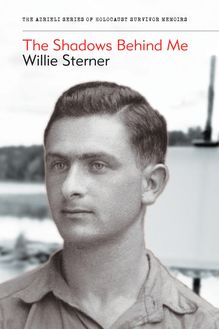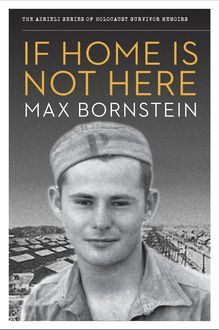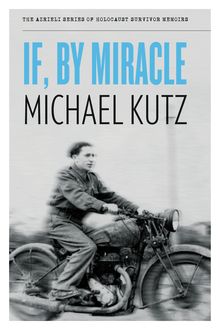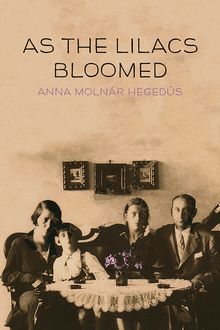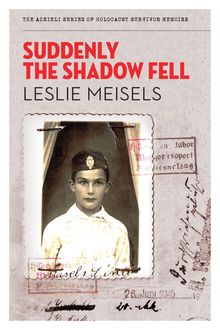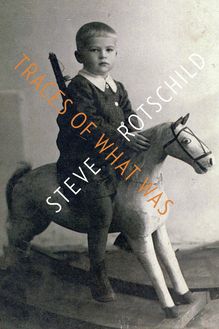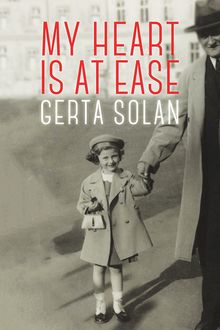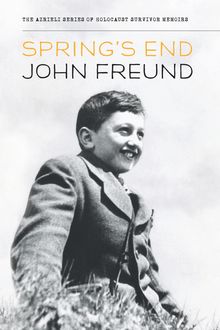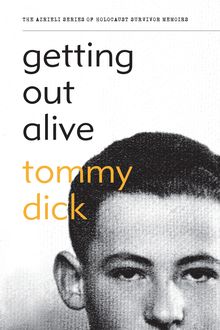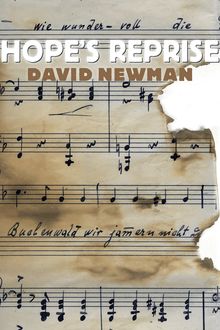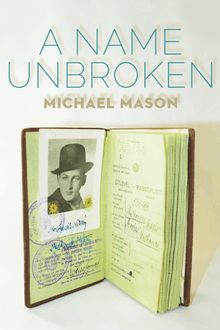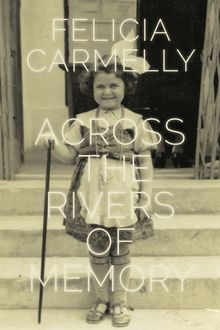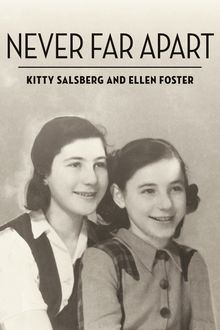-
 Univers
Univers
-
 Ebooks
Ebooks
-
 Livres audio
Livres audio
-
 Presse
Presse
-
 Podcasts
Podcasts
-
 BD
BD
-
 Documents
Documents
-
- Cours
- Révisions
- Ressources pédagogiques
- Sciences de l’éducation
- Manuels scolaires
- Langues
- Travaux de classe
- Annales de BEP
- Etudes supérieures
- Maternelle et primaire
- Fiches de lecture
- Orientation scolaire
- Méthodologie
- Corrigés de devoir
- Annales d’examens et concours
- Annales du bac
- Annales du brevet
- Rapports de stage
La lecture à portée de main
Vous pourrez modifier la taille du texte de cet ouvrage
Découvre YouScribe en t'inscrivant gratuitement
Je m'inscrisDécouvre YouScribe en t'inscrivant gratuitement
Je m'inscrisEn savoir plus
Vous pourrez modifier la taille du texte de cet ouvrage
En savoir plus

Description
Sujets
Informations
| Publié par | Azrieli Foundation |
| Date de parution | 01 septembre 2012 |
| Nombre de lectures | 1 |
| EAN13 | 9781897470701 |
| Langue | English |
| Poids de l'ouvrage | 3 Mo |
Informations légales : prix de location à la page 0,0300€. Cette information est donnée uniquement à titre indicatif conformément à la législation en vigueur.
Extrait
If Home Is Not Here
Max Bornstein
The Azrieli Series of Holocaust Survivor Memoirs
INTERNATIONAL ADVISORY COUNCIL
Doris Bergen, Chancellor Rose and Ray Wolfe Chair in Holocaust Studies, University of Toronto
Sara R. Horowitz, Director of the Israel and Golda Koschitzky Centre for Jewish Studies, York University
Nechama Tec, Professor Emerita of Sociology, University of Connecticut
Avner Shalev, Chairman of the Yad Vashem Directorate, Jerusalem
Naomi Azrieli, Publisher
Andrea Knight, Managing Editor
Arielle Berger, Editor
Mia Spiro, Editor
Elizabeth Lasserre, Senior Editor, French-Language Editions
Aurélien Bonin, Assistant Editor / Researcher, French-Language Editions
Elin Beaumont, Outreach and Communications Manager
Tim MacKay, Program Assistant
Susan Roitman, Executive Coordinator
Mary Mellas, Executive Coordinator
Mark Goldstein, Art Director
Nicolas Côté, Layout, French-Language Editions
Maps by François Blanc
Contents
The Azrieli Series of Holocaust Survivor Memoirs
Series Preface: In their own words...
About the Glossary
Introduction
Max Bornstein’s Family Tree*
Dedication
Acknowledgements
Author’s Preface
Leaving Poland
To Paris
Beginning Life in Canada
Happy Days
Into the Eye of the Storm
A Young Apprentice
More Ups and Downs
Hope, Peace and War
Occupation and Escape
Across the Pyrenees
Capture
Miranda de Ebro
Freedom!
Breakdown
Looking for a Way Back
The Tide Turns
Victory in Europe
The Wait Continues
Return to Paris
Home Again
Epilogue
Glossary
Photographs
Copyright
Series Preface: In their own words...
In telling these stories, the writers have liberated themselves. For so many years we did not speak about it, even when we became free people living in a free society. Now, when at last we are writing about what happened to us in this dark period of history, knowing that our stories will be read and live on, it is possible for us to feel truly free. These unique historical documents put a face on what was lost, and allow readers to grasp the enormity of what happened to six million Jews – one story at a time.
David J. Azrieli, C.M., C.Q., M.Arch Holocaust survivor and founder, The Azrieli Foundation
Since the end of World War II , over 30,000 Jewish Holocaust survivors have immigrated to Canada. Who they are, where they came from, what they experienced and how they built new lives for themselves and their families are important parts of our Canadian heritage. The Azrieli Foundation’s Holocaust Survivor Memoirs Program was established to preserve and share the memoirs written by those who survived the twentieth-century Nazi genocide of the Jews of Europe and later made their way to Canada. The program is guided by the conviction that each survivor of the Holocaust has a remarkable story to tell, and that such stories play an important role in education about tolerance and diversity.
Millions of individual stories are lost to us forever. By preserving the stories written by survivors and making them widely available to a broad audience, the Azrieli Foundation’s Holocaust Survivor Memoirs Program seeks to sustain the memory of all those who perished at the hands of hatred, abetted by indifference and apathy. The personal accounts of those who survived against all odds are as different as the people who wrote them, but all demonstrate the courage, strength, wit and luck that it took to prevail and survive in such terrible adversity. The memoirs are also moving tributes to people – strangers and friends – who risked their lives to help others, and who, through acts of kindness and decency in the darkest of moments, frequently helped the persecuted maintain faith in humanity and courage to endure. These accounts offer inspiration to all, as does the survivors’ desire to share their experiences so that new generations can learn from them.
The Holocaust Survivor Memoirs Program collects, archives and publishes these distinctive records and the print editions are available free of charge to libraries, educational institutions and Holocaust- education programs across Canada, and at Azrieli Foundation educational events. They are also available for sale to the general public at bookstores. All editions of the books are available for free download on our web site at: www.azrielifoundation.org .
The Azrieli Foundation would like to express appreciation to the following people for their invaluable efforts in producing this series: Simone Abrahamson, Florence Buathier, Jesse Cohoon, Darrel Dickson and Sherry Dodson (Maracle Press), Sir Martin Gilbert, Stan Greenspan, Robin Harp of the US Holocaust Memorial Mu-seum, Richard Mozer, Arnaud Regnaud, Sylwia Szymańska-Smolkin, Keaton Taylor, Lise Viens, Margie Wolfe and Emma Rodgers of Second Story Press, Sylvia Vance and Piotr Wróbel.
About the Glossary
The following memoir contains a number of terms, concepts and historical references that may be unfamiliar to the reader. For information on major organizations; significant historical events and people; geographical locations; religious and cultural terms; and foreign-language words and expressions that will help give context and background to the events described in the text, please see the Glossary .
Introduction
Early in his memoir, Max Bornstein (then Mordechai Zalman) describes a seemingly banal incident at the Winnipeg orphanage where he and his younger sister, Clarice, lived for six years in the 1920s. At the time, Bornstein’s father, Chiel, was a stateless refugee in Paris and his mother, Liba, was unable to care for her children due to ill health and a dearth of financial resources. While they played outside on the orphanage grounds, some of the older children invented a game of throwing the younger children into the air on a blanket held firmly at each of its four corners. When Bornstein, then six years old, took his turn, one of the older boys accidentally lost his grip on the blanket and Bornstein fell hard on the ground. Although he wasn’t seriously injured, Bornstein recalls a deep sense of abandonment and aloneness in the aftermath: “the pain did make me cry and there was no one to comfort me.”
In many ways, this childhood memory – and the deep loss and emotional pain it symbolizes – anticipates many of the central themes embedded in Bornstein’s narrative: displacement, poverty, abandonment and institutionalization. Unlike many previously published survivor testimonies, Bornstein’s account does not begin and end with the Holocaust. Instead, his story extends across more than twenty years of unfathomable suffering and is dominated by the two distinct but overlapping traumatic trajectories of domestic violence and state violence. On the domestic front, Bornstein endured a decade-long separation from a father who, once reunited with the family, was physically abusive to Bornstein’s mother. Bornstein recalls how he felt helpless to intervene and stop the violence and how the constant clashes between his parents provoked in him tremendous anxiety and worry. He writes, “In all the years I spent in Paris, nothing affected me so profoundly as having to constantly witness my parents fighting. It left me drained, confused, frightened and upset. For children, nothing equals the pain of watching their parents exchange violent blows.” At the same time, the entire family was plagued by their status as stateless refugees, and the Nazi threat loomed large in a global climate of antisemitism and restrictive immigration policies. What makes Bornstein’s memoir truly striking, however, is the extent to which he moved not only between countries but also between institutions. Over two decades, Bornstein found himself institutionalized in an orphanage in Canada, a homeless shelter in France, a concentration camp in Spain, and a psychiatric hospital in the United Kingdom. In this sense, Bornstein offers us a Holocaust narrative that differs from more familiar stories about surviving in hiding or living through the horrors of the Nazi camps. Bornstein existed in a state of nearly constant exile, fear and perpetual wandering before, during and after the war.
Max Bornstein was born on November 12, 1921, into a poor Jewish family in Warsaw, Poland. At the time, Poland was home to 2.8 million Jews, a number that would rise to more than 3.3 million by 1938 due to immigration from the Russian and Ukrainian territories of the Soviet Union. Antisemitism was commonplace in Poland during this period, stemming from hundreds of years of systemic prejudice in the Catholic Church, persistent myths about Jews murdering Christian children in acts of “blood libel” and a widespread intolerance for linguistic, religious and cultural differences. Just as Jews fled from pogroms in the Soviet republics to Poland, so Polish Jews also emigrated westward in significant numbers. Bornstein’s family was among the thousands of Polish Jews who immigrated to France via Berlin in the early 1920s. Bornstein’s father could not obtain a Polish passport because he had not completed his military service, so he arrived in France as a stateless and undocumented refugee. With Bornstein’s father precariously employed and under the constant threat of expulsion, the family frequently relied on Jewish charities for subsistence. In the fall of 1923, Bornstein and his mother, then pregnant with Clarice,
-
 Univers
Univers
-
 Ebooks
Ebooks
-
 Livres audio
Livres audio
-
 Presse
Presse
-
 Podcasts
Podcasts
-
 BD
BD
-
 Documents
Documents
-
Jeunesse
-
Littérature
-
Ressources professionnelles
-
Santé et bien-être
-
Savoirs
-
Education
-
Loisirs et hobbies
-
Art, musique et cinéma
-
Actualité et débat de société
-
Jeunesse
-
Littérature
-
Ressources professionnelles
-
Santé et bien-être
-
Savoirs
-
Education
-
Loisirs et hobbies
-
Art, musique et cinéma
-
Actualité et débat de société
-
Actualités
-
Lifestyle
-
Presse jeunesse
-
Presse professionnelle
-
Pratique
-
Presse sportive
-
Presse internationale
-
Culture & Médias
-
Action et Aventures
-
Science-fiction et Fantasy
-
Société
-
Jeunesse
-
Littérature
-
Ressources professionnelles
-
Santé et bien-être
-
Savoirs
-
Education
-
Loisirs et hobbies
-
Art, musique et cinéma
-
Actualité et débat de société
- Cours
- Révisions
- Ressources pédagogiques
- Sciences de l’éducation
- Manuels scolaires
- Langues
- Travaux de classe
- Annales de BEP
- Etudes supérieures
- Maternelle et primaire
- Fiches de lecture
- Orientation scolaire
- Méthodologie
- Corrigés de devoir
- Annales d’examens et concours
- Annales du bac
- Annales du brevet
- Rapports de stage
